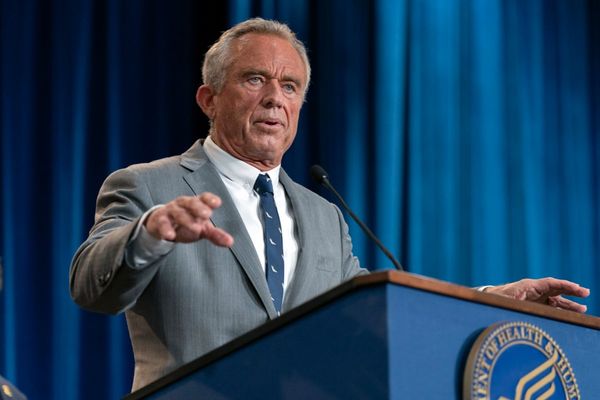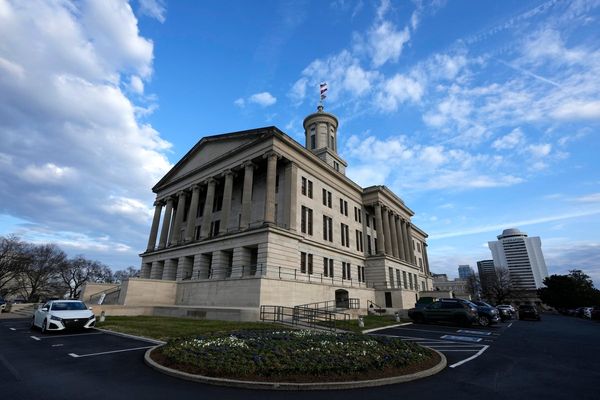After emerging as one of the best quarterbacks in the league last season, Jalen Hurts got paid like one.
The Eagles star agreed to terms with the team on a five-year, $255 million contract extension through 2028 on Monday morning according to a league source, a deal that sets history in several ways.
The extension, worked out by Hurts’ agent, Nicole Lynn, is not only believed to be the biggest contract ever negotiated by a female agent, but also the largest in Eagles history. It has a chance to be the biggest deal in league history depending on incentives, and the guaranteed money is second-most in NFL history. Also, the no-trade clause Hurts received is a first for the Eagles.
Until Hurts, 24, signs on the dotted line, the exact framework of the contract and several key details may not be apparent, but the early indication is the Eagles have reason to be encouraged by the agreement as well. Here’s how Hurts’ contract fits into the quarterback market, how it impacts the Eagles’ salary cap situation, and why the timing is so important.
Resetting the market
Hurts’ new deal resets the market in average annual value while coming in just under the top quarterbacks in terms of overall value and total money guaranteed.
His $51 million AAV surpasses Aaron Rodgers, who was the only quarterback north of the $50 million mark. The key difference between Hurts and Rodgers, who is a million below Hurts’ new deal, is the length of the contracts. Hurts signed a five-year deal, while Rodgers only got three years in the extension he signed with Green Bay last offseason.
Hurts’ $179.3 million guaranteed is also the second-highest figure in league history behind only Cleveland Browns quarterback Deshaun Watson, who signed an unprecedented fully guaranteed deal last offseason as part of a trade sweepstakes.
Hurts’ total contract value is behind Kansas City’s Patrick Mahomes, who signed a 10-year deal worth $450 million and Buffalo’s Josh Allen, whose deal is worth $258 million on a six-year extension. As a former second-round pick, Hurts’ extension numbers are also influenced by a smaller cap hit on the final year of his rookie deal than his counterparts taken early in the first round had, meaning he’s getting more new money than others did.
Similar to Watson’s, Mahomes’ deal is creative in its structure and circumstance and therefore is difficult to use for comparisons. Hurts’ annual value is significantly higher than Mahomes’, whose deal may look quite below market in a few years.
Allen’s, though, is a strong comparison for both Hurts and the Eagles. Hurts could reach up to $274.3 million with incentives, according to a league source. Allen, according to overthecap.com, can get up to $288 million with the extra year, which means his AAV is lower.
Flexibility early
Believe it or not, Hurts will still reportedly make less than Giants quarterback Daniel Jones over the next two seasons.
According to NFL Network, Hurts is due $64 million through the first new year of his deal in 2024. This indicates Hurts’ contract will leave the Eagles with some extra maneuverability over the next two seasons instead of bogging them down during what should be a championship window. By comparison, Jones is due $82 million during the same stretch.
Some of the discrepancy can be explained by Hurts having one year existing on his deal whereas Jones signed a new contract before hitting free agency, but Hurts’ cap hit will still grow next season because of the guaranteed money spreading over the duration of his reworked deal.
By the time his cap hits balloon in a few seasons, the landscape of the league could look significantly different. The salary cap should continue to rise, as will quarterback contracts and the guarantees that come with them.
Speaking of that ...
First to the party
For the Eagles, the timing of this Hurts extension is everything.
The terms of the contract are obviously excellent for Hurts after an MVP-caliber season, but the Eagles will be happy the deal got done before other star quarterbacks like Joe Burrow, Lamar Jackson, or Justin Herbert sign anything.
Eagles general manager Howie Roseman downplayed the importance of reaching an agreement before the other quarterbacks at multiple points during the offseason, but Monday’s announcement isn’t a surprise given Roseman’s history. The Eagles believe the price of quarterbacks only rises with time, which is typically true, and getting a deal done faster is mutually beneficial. They signed Carson Wentz to an extension in relatively short order in 2019 and, even with Wentz’s sharp regression, managed to get out of the deal with just one year of severe cap implications.
Beating Burrow, Herbert, and Jackson to the punch means Hurts’ deal may look even more favorable by the end of the offseason.







